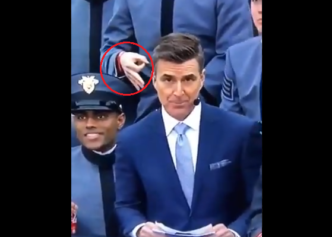A new study provides even further evidence of the pervasiveness of racial discrimination in America, particularly in cases where Black people come into contact with local government services. The results suggest what people of African descent know, which is that they should expect to experience some form of discrimination wherever they go.
The study, which was conducted by researchers at the Institute for the Study of Labor (IZA) and the University of Southampton, found that requests for information from local public services such as school districts, libraries and sheriff’s offices will less likely receive a reply if the request was made by someone with a “Black-sounding” name.
The economists found that emails sent by individuals with distinctly “African-American-sounding” names were four percent less likely to receive a response (68 percent) than so-called “white-sounding” names (72 percent). Sheriff’s offices accounted for the largest difference at seven percentage points, while county clerk offices and job centers had a smallest, statistically insignificant difference.
Further, there was a difference in tone of the email response. While 72 percent of responses to people with white names addressed the person by name or with a salutation, this was the case for only 66 percent of people with Afrocentric names. Although the disparity was wider in rural rather than urban areas, this took place across the country without regard to geographical location.
“Despite the fact that prohibition of racial discrimination by the government is a central tenet of US law, our finding shows that not all citizens are treated equally by local public service providers,” said Dr. Corrado Giulietti of IZA, co-author of the report. “Local services constitute the majority of interactions between government institutions and citizens and perform central functions, for instance in education. The discriminatory attitude that our study uncovers could be one of the factors behind the disadvantaged position of black people in American society and could be a major obstacle towards addressing racial inequality.”
This latest study sounds eerily similar to a study in which job applicants with “Black-sounding” names were less likely to receive callbacks for an interview than their presumably white counterparts. It’s this systemic racism in employment which at least partly explains why the unemployment rate for Black college graduates is double the white rate.
At a time when Black people demand that white people say our names—that is, the names of Black people who were killed by police—there is both a demand to be treated as a human being, and a struggle to combat the pathology of white supremacy. And when Black people are told that racism is a mere figment of their imagination, it is clear that all that is imaginary is the notion that people in America are treated equally regardless of race.
In the U.S., your interaction with the government can shape your life—and in the case of law enforcement, it can cost you your life, depending on your melanin content and your DNA. Although it should not be surprising that law enforcement agencies were the most egregious examples of racism in this email study, it is nonetheless an outrage and a call to action.
Governments are institutions, and institutions consist of and are controlled by individuals who have their prejudices, including, perhaps, a hatred of Black people. If racism is pervasive in society, we should expect the government will be no different, despite laws to the contrary. For centuries, a culture has pervaded our society in which the narrative of Black inferiority, criminality and worthlessness has dominated both custom and public policy. Because Black people have been vilified in white narratives for so long, they are not deserving of compassion.
Further, while white America has oppressed Black people for many centuries, it still believes it is necessary to protect itself from “them,” the enemy. In order to change this reality, it seems, we must create a new narrative. Changing the laws, while important, is insufficient if the same stories of Black otherness are being promoted in white America, all to the detriment of Black people.
All of this begs the question: What is it about Black names that elicits such a negative response from whites?


